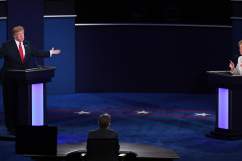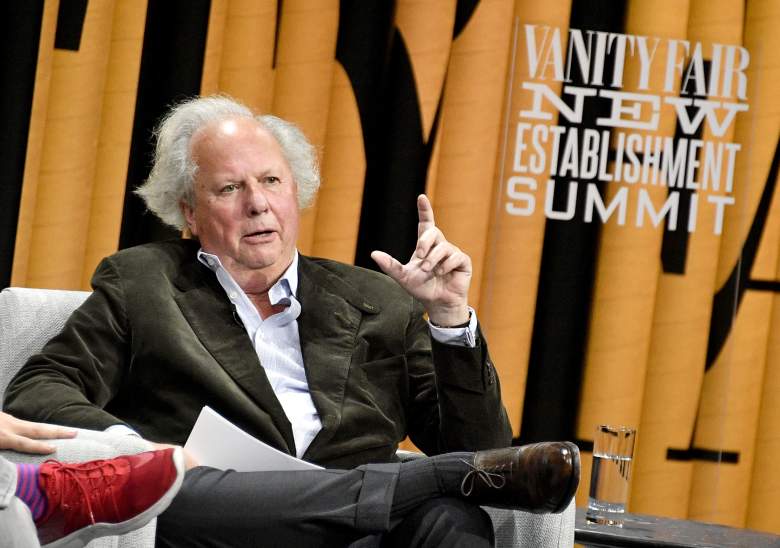
Donald Trump’s feud with Vanity Fair’s Graydon Carter goes back to the 1980s. (Getty)
When someone insults Donald Trump, the president-elect never forgets. Just ask Vanity Fair editor Graydon Carter. On December 15, Trump started his day by resuming the decades-long feud with Carter on Twitter with a personal attack. The two have been at it since the 1980s, when Carter edited the satirical Spy magazine.
“Has anyone looked at the really poor numbers of @VanityFair Magazine. Way down, big trouble, dead! Graydon Carter, no talent, will be out,” Trump tweeted. However, Vanity Fair’s faith in Carter has never wavered, because he’s been an editor for the Conde Nast magazine since 1992.
Trump’s insult this morning was not out-of-the-blue. On December 14, Vanity Fair published a review of Trump Grill, the restaurant in the Trump Tower lobby. The magazine wrote that it “could be the worst restaurant in America.”
Moments after that tweet, Trump praised Time Magazine and the Financial Times for naming him their “Person of the Year.”
The 67-year-old Carter was born in Toronto co-founded The Canadian Review in 1973. After the magazine shut down in 1978, he moved to the U.S. to work for Time Magazine. He moved to Life in 1983, where he stayed until he co-founded Spy. In 1992, he was hired to be editor-in-chief at Vanity Fair, where he’s been ever since.
As for his political leanings, the late David Carr wrote in the New York Times in 2003 that Carter is “a liberal with libertarian tendencies.”
Here’s a look at how their never-ending feud.
1. Carter Is Credited With Creating the Donald Trump Insult ‘Short-Fingered Vulgarian’ in Spy Magazine
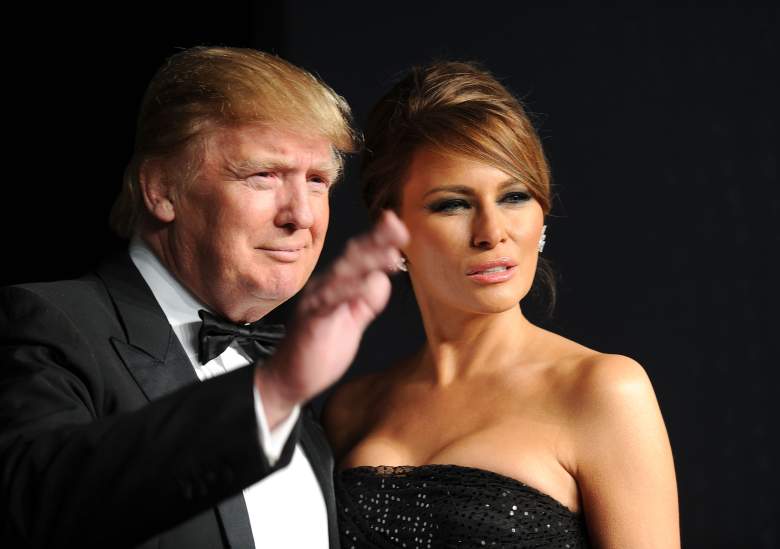
Trump might not like Carter, but here he is with wife Melania Trump at the 2011 Vanity Fair Oscars party. (Getty)
Once it was established in 1988, Spy, which Carter co-founded with Kurt Andersen and Thomas L. Phillips Jr., often poked fun at the New York elite, including Trump. In a 1988 issue, Carer called Trump a “short-fingered vulgarian.” An obsession with Trump’s “small” fingers began, with Vanity Fair even publishing a “historical analysis” of Trump’s fingers in February 2016.
Carter has been noticing Trump’s small fingers since at least 1984. While describing Trump in a 1984 GQ profile, Carter wrote:
Meet Donald Trump. Age 38. Eyebrows by Henry Luce. The sandy hair—longish on the sides in a Chamber of Commerce sort of way and brushed flat over the ears—by George Steinbrenner. The six-foot-two-inch frame is trim but well-nourished. The hands small and neatly groomed. The suit is blue and stylish—maybe a little too flared in the leg for someone who lives east of the Hudson. About the only thing that gives away this striver from an outer borough are his cuff links: huge mollusks of gold and stone the size of half-dollars.
2. Carter Wrote in Fall 2015 That He Still Gets Letters From Trump That Highlight the Length of His Fingers
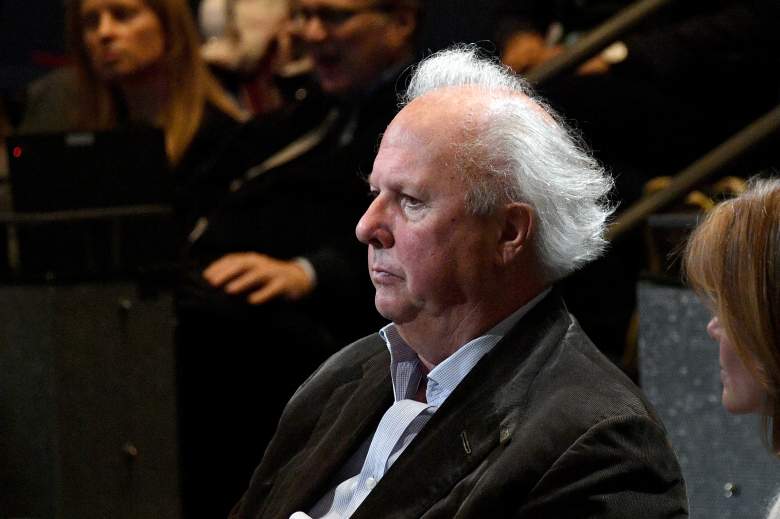
(Getty)
Carter’s descriptions of Trump’s hands have vexed Trump so much that he would send letters to Carter, showing how long his fingers are. In October 2015, nearly three decades after the initial “short-fingered vulgarian” description was published, Carter wrote in Vanity Fair that Trump would still sent him letters.
Carter wrote:
To this day, I receive the occasional envelope from Trump. There is always a photo of him—generally a tear sheet from a magazine. On all of them he has circled his hand in gold Sharpie in a valiant effort to highlight the length of his fingers. I almost feel sorry for the poor fellow because, to me, the fingers still look abnormally stubby. The most recent offering arrived earlier this year, before his decision to go after the Republican presidential nomination. Like the other packages, this one included a circled hand and the words, also written in gold Sharpie: “See, not so short!” I sent the picture back by return mail with a note attached, saying, “Actually, quite short.” Which I can only assume gave him fits.
Trump has also defended the length of his fingers in the press. As The Weekly Standard notes, Trump once told the New York Post that his “fingers are long and beautiful, as, has been well-documented, are various other parts of my body.”
During one of the Republican primary debates, Marco Rubio even brought up the size of Trump’s hands. “He referred to my hands—if they’re small, something else must be small. I guarantee you there’s no problem. I guarantee it,” Trump replied.
3. Trump Has Been Predicting Vanity Fair Folding on Twitter Since at Least 2012
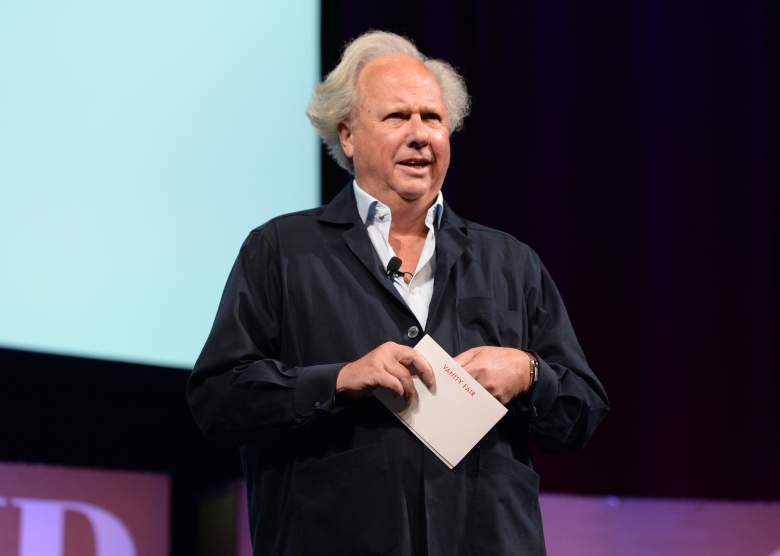
(Getty)
During all 10 years of Spy’s existence, Trump predicted the magazine would eventually fail. The New York Times noted in 2006 that Trump even celebrated when the magazine was shut down. And since 2012 on Twitter, he’s been predicting that Vanity Fair will meet the same end.
“Can’t wait for Vanity Fair to fold which, under Graydon Carter, will be sooner rather than later,” Trump tweeted in 2012, notes CNNMoney.
Since then, it has been almost an annual tradition for Trump to predict that Vanity Fair is going to end publication. Each tweet has a personal insult for Graydon. “If Graydon Carter’s very dumb bosses would fire him for his terrible circulation numbers at failing Vanity Fair-his bad food restaurants die,” Trump wrote in 2013.
In 2014, he wrote, “Does @VanityFair realize that the purpose of a magazine is to sell issues? Circulation at record low. Spy Mag also failed under Graydon.”
The 2015 tweet about Vanity Fair read, “Rumor has it that the grubby head of failing @VanityFair Magazine, “Sloppy” Graydon Carter, is going to be fired or replaced very soon?”
4. Vanity Fair’s May Cover Featured a Trump Insult Tweet in Amy Schumer’s Armpit
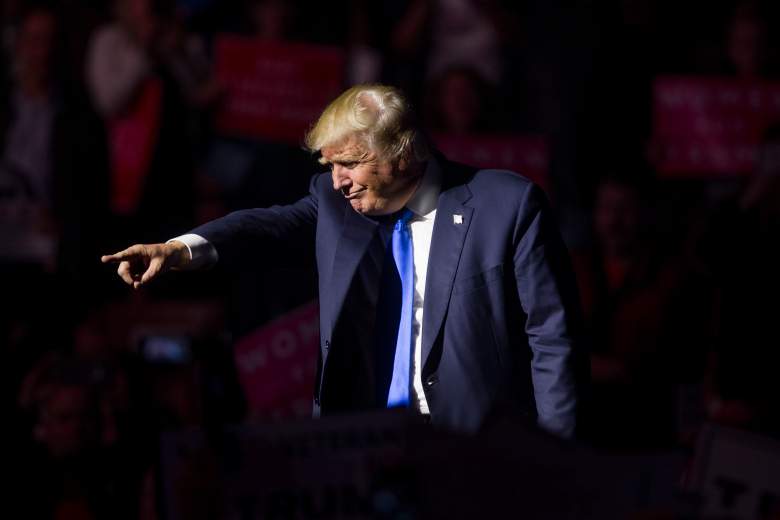
(Getty)
Vanity Fair’s May cover featured Donald Trump – or at least his words. Tucked under the armpit of comedian Amy Schumer was a tweet from Trump that read, “@VanityFair Magazine is doing really poorly. It has gotten worse and worse over the years, and has lost almost all of it’s [sic] former allure!”
Each Vanity Fair cover usually features a quote about the issues contents or the news.
“But given that Trump has spent so much time featuring Vanity Fair and its editor, Graydon Carter, in his daily Twitter musings, it only made sense to acknowledge the years-long 140-character missives he has been launching at what must be his favorite magazine for the first time,” Vanity Fair’s Emily Jane Fox wrote.
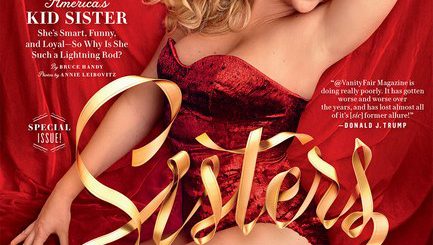
A closer look at Vanity Fair’s May Cover, which featured a Trump tweet. (Vanity Fair)
5. Carter Was Invited to 2 Trump Weddings & Attended Trump’s Marriage to Marla Maples
In an October column, Carter recounted his 30-year relationship with Trump, noting that he was even invited to two Trump weddings. The only one he attended was Trump’s marriage to Marla Maples in 1993.
“It was held in the ballroom of the Plaza hotel on a weekday evening and seemed more like a product launch than anything else,” Carter recalled. “He sent me a couple of Trump ties. They were a basic blue and a basic red, and they were as stiff as a child’s sword. He sent me Trump vodka, which I passed along to Mike Hogan, here at the magazine.”
Carter wrote that dinner with Trump is a “one-sided affair” since he “talks so much and with such velocity that it can make your hair flutter.”
“When that attention wanes, he will be left with his press clippings, his dyed hair, his fake tan, and those tiny, tiny fingers,” Carter’s last sentence reads.
In November, Carter wrote another piece on Trump, reacting to his election victory. He suggested that only in America could a man like Trump be elected president. “Only in America could a man whose primary national exposure was appearing on a reality-TV show become the reality that so much of the world feared,” Carter wrote.

